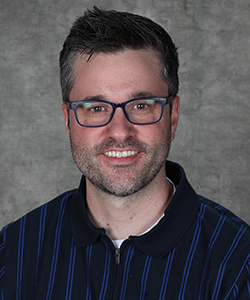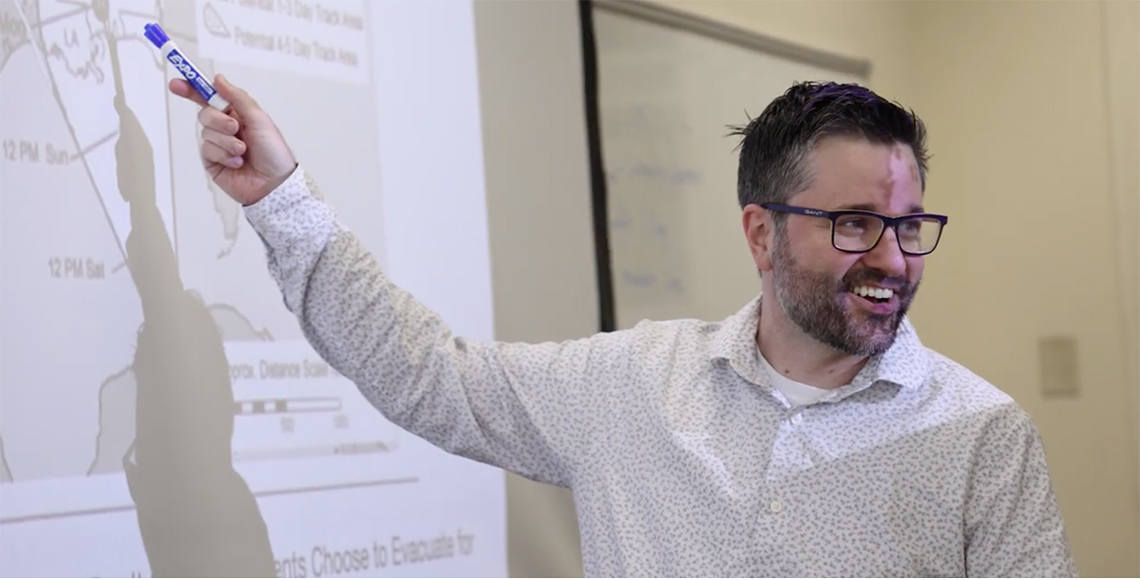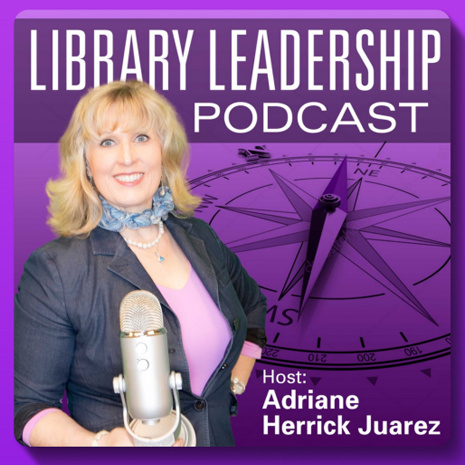Checking out books, answering reference questions and hosting community events fill a routine day for thousands of public library professionals across the country. Most workplaces rely on routines to increase efficiency and get things done, and libraries are no different. But routines can also be problematic for workers.
University of South Carolina Associate Professor Darin Freeburg researches how these workplace routines, specifically those in libraries, operate and how employees are impacted by them.

“Work routines don’t just tell workers how to get work done, they also tell them who they should be as they do the work and what that means,” said Freeburg. “When your mental health, disability, skin color, sexuality, or any other component of your identity fails to align with who the routine expects you to be, you can face significant consequences.”
Freeburg stressed that as the routine repeats over time, negative consequences may become standardized and normalized in the workplace.
“People are leaving the profession because they don’t feel comfortable being themselves. The identity work some staff feel they have to do in order to fit can take a toll over time,” said Freeburg.
Freeburg shared the experience of a library staff member with autism who, because she was denied necessary accommodations, was forced to work as if she did not have autism. He also heard from a staff member who felt the need to hide his identity as a gay man when he worked in the children’s section of the library because some patrons felt he didn’t belong there.
“During our research, we began bringing some hidden concerns and issues to the surface. We wanted to do more to identify the obstacles facing marginalized workers, so we can hopefully change and improve the workplace for all workers,” said Freeburg.
In 2023, Freeburg joined a small team of researchers and librarians from across the country to launch The Public Library Routines Project. A grant from the Institute of Museum and Library Services funded the three-year project. The project aims to uncover problematic routines in public libraries, study their impacts, identify what staff do to work around those routines and examine the success of those workarounds.
“Following the pandemic, many organizations were forced to rethink the nature of work — what it looks like, how we do it well, how we support workers. We think public library staff have a lot to add to that conversation — not just for libraries, but for other professions as well.”
In the first year of the project, more than 40 library staff from across the country recorded about 200 audio diaries. They shared stories about how routine work made them feel stuck, frustrated or uncomfortable and how they worked around those obstacles.
“I have been truly impacted by how willing these staff members are to talk about things that aren’t easy to talk about, including racism, sexism and mental health struggles,” said Freeburg.
More public library professionals are needed to participate in the first phase of this project, specifically staff of color, LGBTQIA+ staff, or staff with disabilities, chronic conditions or mental health challenges.
“They will keep an audio diary of their experiences in routine work and sit for a 45-minute interview. Everything will be done virtually,” said Freeburg. “We also need library staff to write and submit short stories about their experiences.”
After collecting these audio and written testimonials, the research team plans to host workshops at libraries across the country to discuss the findings with library employees and management.
“During these workshops, we will begin to talk about how we redesign work to overcome the issues we uncover in our findings and increase the likelihood that people stay in the profession.”
The team needs libraries to serve as workshop sites during the second year of the project. Contact Katie Klein for more information about hosting the workshop series.
“I do think the profession is ready and willing to change,” said Freeburg. “Our findings can also be a playbook for other service industries and professions as they try to provide workers with the space to discover and signal an identity that is both true to the profession and to themselves.”
Turning theory into action is the goal of the final year of the project. Freeburg said they plan to use their findings to craft professional development training, as well as a course in USC’s Master of Library and Information Science degree program.
“We can impact more professionals through online workshops and resources aimed at helping librarians pinpoint obstacles and improving routines and processes,” said Freeburg. “The master’s level course would also allow us to better prepare the next generation of librarians to identify obstacles, advocate for themselves and others, and create more efficient and positive work environments.”
At the end of the project, Freeburg hopes the findings are used to “better support the people who drive the work of librarianship” so fewer employees leave the critical profession.

